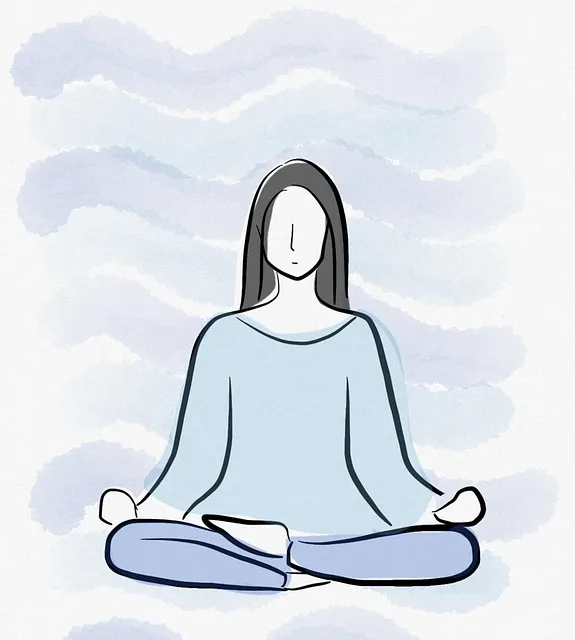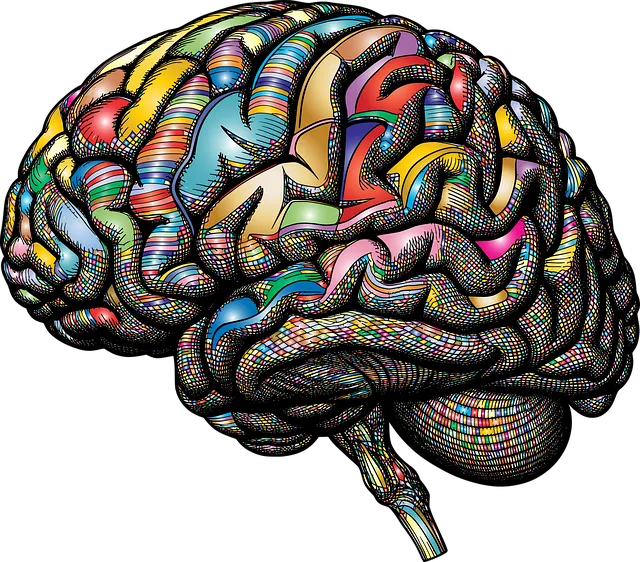The Kaiser Permanente mental health center Superior focuses on mood regulation as a path to emotional well-being, emphasizing self-awareness, evidence-based therapies (CBT, DBT), and mindfulness techniques. Through tailored care, cognitive retraining, and lifestyle adjustments (exercise, diet, stress management), individuals gain tools to manage anxiety, prevent depression, and build mental resilience, ultimately enhancing their quality of life.
Mood regulation is a vital aspect of achieving superior emotional well-being. In today’s fast-paced world, maintaining emotional balance can be challenging. This article explores various strategies to help you navigate and optimize your mood. From understanding the fundamentals of emotional balance to leveraging professional resources like the Kaiser Permanente Mental Health Center, cognitive techniques for mental retraining, lifestyle adjustments, and mindfulness practices – each section provides insights into achieving a more stable and fulfilling life.
- Understanding Mood Regulation: Unraveling Emotional Balance
- The Role of Kaiser Permanente Mental Health Center in Strategies
- Cognitive Techniques: Retraining Your Mind for Stability
- Lifestyle Adjustments for Superior Emotional Well-being
- Mindfulness and Relaxation: Finding Serenity in a Busy World
Understanding Mood Regulation: Unraveling Emotional Balance

Mood regulation is a vital aspect of emotional well-being, and achieving emotional balance can be a transformative journey. The Kaiser Permanente mental health center Superior recognizes that understanding mood fluctuations is the first step towards effective management. Emotional balance is not about suppressing feelings but rather learning to navigate them constructively.
By fostering self-awareness exercises, individuals can gain insights into their triggers and develop coping mechanisms tailored to their unique needs. This proactive approach, coupled with superior mental health services, enables people to combat anxiety relief, depression prevention, and promote overall mental resilience. It’s about recognizing that emotional regulation is a skill that can be cultivated over time, leading to a more fulfilling and balanced life.
The Role of Kaiser Permanente Mental Health Center in Strategies

The Kaiser Permanente Mental Health Center plays a pivotal role in empowering individuals to take charge of their mood regulation strategies. With its superior expertise and resources, the center offers comprehensive care tailored to each patient’s unique needs. Therapists and counselors employ evidence-based practices, such as cognitive-behavioral therapy (CBT), dialectical behavior therapy (DBT), and mindfulness techniques, to support emotional healing processes. These approaches not only help individuals identify and change negative thought patterns but also teach effective communication strategies for healthier relationships and increased self-confidence.
By fostering a supportive environment, Kaiser Permanente equips its clients with valuable tools to navigate life’s challenges. Through personalized therapy sessions, patients gain insights into their emotional triggers and learn coping mechanisms to manage stress and anxiety. Moreover, the center promotes self-care practices that reinforce positive mental health habits, enabling individuals to lead fulfilling lives with enhanced resilience and a boosted sense of confidence.
Cognitive Techniques: Retraining Your Mind for Stability

At the Kaiser Permanente mental health center, Superior cognitive techniques are recognized as powerful tools for mood regulation. These strategies involve retraining your mind to adopt a more positive and balanced perspective, focusing on the underlying thought patterns that contribute to emotional instability. By understanding and challenging negative thoughts, individuals can gain greater control over their emotions and cultivate mental resilience.
The Mind Over Matter principles emphasize cognitive reframing, where individuals learn to view challenges as opportunities for growth rather than sources of anxiety or stress. This technique helps in preventing burnout by fostering a sense of empowerment and self-efficacy. Through consistent practice, these cognitive strategies can significantly reduce symptoms of anxiety relief, enabling individuals to navigate life’s complexities with enhanced emotional stability.
Lifestyle Adjustments for Superior Emotional Well-being

At the Kaiser Permanente mental health center Superior, experts emphasize that lifestyle adjustments play a pivotal role in enhancing emotional well-being. Incorporating regular physical activity, for instance, has been shown to significantly reduce symptoms of anxiety and depression while promoting better sleep patterns – key components for maintaining mental balance. A balanced diet, rich in nutrients, also contributes to improved mood regulation by stabilizing blood sugar levels, which can influence energy and emotion throughout the day.
Additionally, prioritizing stress management techniques like mindfulness meditation or yoga helps build resilience against life’s challenges. These practices foster coping skills development, enabling individuals to navigate difficult situations with greater equanimity. By integrating such lifestyle changes, not only does one prevent burnout but also cultivates a more robust emotional foundation for overall superior mental health.
Mindfulness and Relaxation: Finding Serenity in a Busy World

In today’s fast-paced world, where hustle and bustle permeate every aspect of life, finding serenity can feel like navigating a labyrinthine path. The Kaiser Permanente mental health center Superior recognizes this challenge and offers powerful tools for mindfulness and relaxation as core components of its mood regulation strategies. These practices aren’t just about finding peace; they are proven stress management techniques that empower individuals to boost their confidence and maintain emotional balance amidst life’s demands.
Mindfulness, in particular, has emerged as a game-changer in the realm of mental well-being. It encourages folks to focus on the present moment, observing thoughts and feelings without judgment. This simple yet profound practice can help dissolve the moist remnants of stress and anxiety that often linger in our minds. Additionally, relaxation techniques such as deep breathing exercises and guided meditation have been shown to revolutionize one’s ability to manage stress, enabling them to approach life with renewed clarity and resilience. The Stress Management Workshops Organization provides valuable resources for those eager to explore these avenues further.
In conclusion, maintaining emotional balance is a multifaceted process that involves understanding our moods, utilizing effective strategies like those offered by the Kaiser Permanente Mental Health Center, and adopting healthy lifestyle changes. By retraining our minds with cognitive techniques, embracing mindfulness, and incorporating relaxation practices, we can achieve superior emotional well-being in today’s busy world. These holistic approaches empower individuals to navigate life’s challenges with resilience and grace, ultimately enhancing their overall quality of life.






